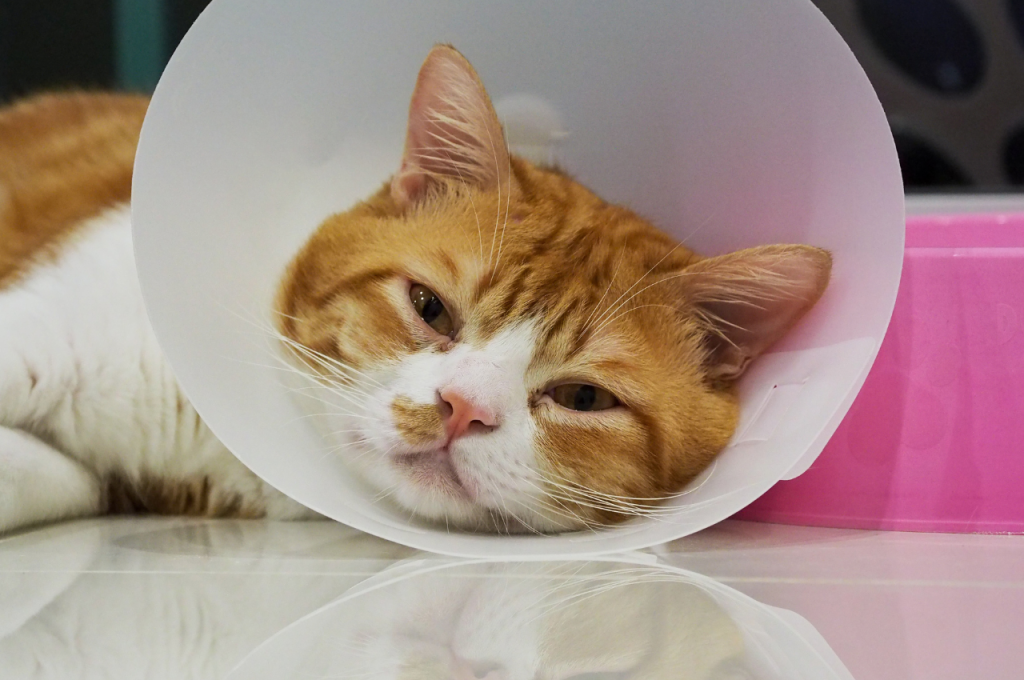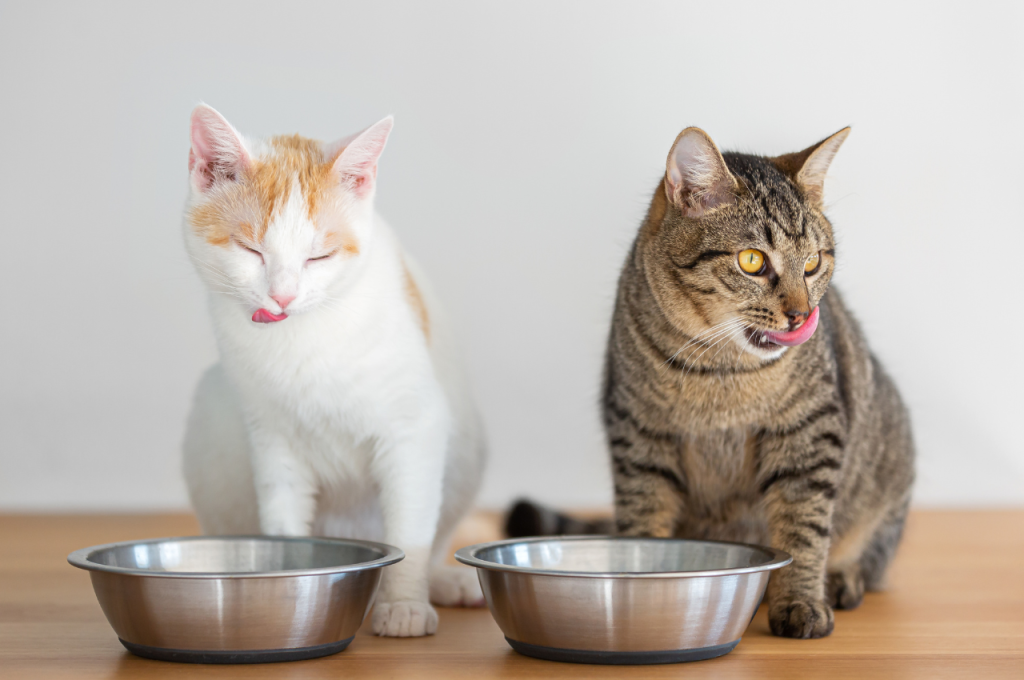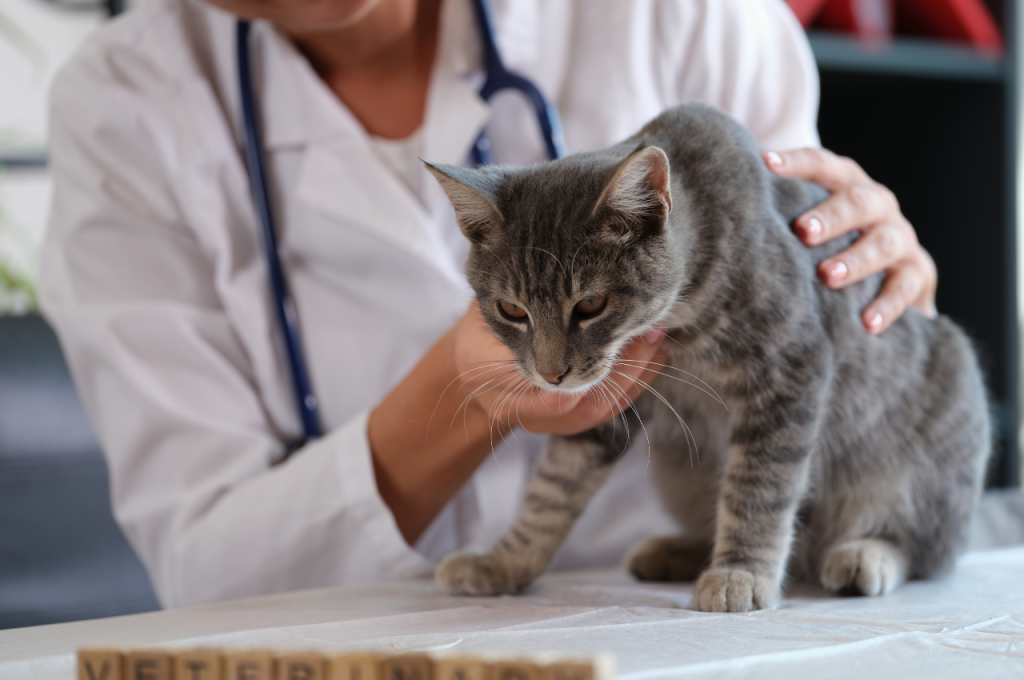To treat a sick cat at home, monitor symptoms closely and keep them hydrated. Provide a quiet, warm environment.
Caring for a sick cat can be concerning, but there are steps you can take at home to help your feline friend feel better. By observing their symptoms and behavior, you can provide supportive care until you can get them to the vet. Keeping your cat hydrated and comfortable is key, along with offering a safe and quiet space for them to rest. Let’s explore some effective ways to treat a sick cat without immediately heading to the vet, ensuring your furry companion gets the best care possible.
Recognizing When Your Cat is Unwell
If your feline friend seems under the weather, there are ways to help without a vet visit. Look for signs like decreased appetite, lethargy, or hiding behavior. Keep your cat comfortable, offer water, and monitor their condition closely. If symptoms persist, consulting a vet is essential.

Signs and Symptoms
When it comes to recognizing when your cat is unwell, it’s important to pay attention to the signs and symptoms they may display. Cats are masters at hiding their discomfort, so it’s crucial to be observant and look out for any changes in their behavior or appearance. Here are some common signs and symptoms to watch out for:
- Loss of appetite or sudden weight loss.
- Excessive thirst or urination.
- Lethargy or lack of energy.
- Changes in litter box habits or difficulty in passing urine or stool.
- Coughing, sneezing, or difficulty in breathing.
- Vomiting or diarrhea.
- Unusual aggression or irritability.
- Visible wounds, sores, or lumps on the body.
- Excessive grooming or hair loss.
- Unpleasant odor from the mouth or body.
It’s important to note that these signs and symptoms can vary depending on the underlying cause of your cat’s illness. If you notice any of these changes in your cat’s behavior, it’s crucial to closely monitor their condition and consider seeking professional help if necessary.
When to Seek Professional Help
If your cat is displaying any of the signs and symptoms mentioned above, it’s essential to know when to seek professional help. While some minor ailments can be treated at home, certain conditions require immediate veterinary attention to prevent further complications. Here are some situations where you should seek professional help:
- If your cat is experiencing severe pain or distress.
- If your cat is unable to eat, drink, or pass urine/stool.
- If your cat has sustained a serious injury or is bleeding profusely.
- If your cat is having difficulty breathing or shows signs of respiratory distress.
- If your cat has ingested a toxic substance or medication.
- If your cat’s symptoms persist or worsen despite home remedies or interventions.
- If you are unsure about the severity of your cat’s condition or if you have any concerns.
Remember, your cat’s health and well-being should always be your top priority. If you are unsure about whether your cat needs professional help, it’s better to err on the side of caution and consult a veterinarian. They have the expertise to diagnose and treat your cat’s illness effectively.
By being vigilant and recognizing the signs and symptoms of an unwell cat, you can take the necessary steps to ensure your furry friend receives the care they need. However, it’s important to remember that while home remedies and care can be helpful for minor ailments, professional veterinary guidance is crucial for more serious conditions.
Creating a Comfortable Environment
Create a cozy space for your sick cat by providing a warm blanket and a quiet area to rest. Offer plenty of fresh water and easily digestible food to encourage recovery at home. Monitor your cat’s symptoms closely and consult a vet if necessary.
Creating a Comfortable Environment for a sick cat is crucial to help them recover faster. As a cat owner, you can do several things to create a comfortable environment for your feline friend without going to the vet. Here are some ways to help your sick cat feel more relaxed and comfortable:
Cozy Resting Area
Create a cozy resting area for your cat by using a soft and comfortable bed. You can use a small box with soft blankets or a pet bed with a comfortable cushion. Place the bed in a quiet and warm area of your house where your cat can rest without any disturbance. Make sure the bed is easy to access for your cat and away from any drafts.
Maintaining Calm
Maintaining a calm environment is essential for the recovery of a sick cat. Cats are sensitive to noise and changes in their surroundings, so it’s important to keep the environment calm and peaceful. Avoid loud noises, bright lights, and any sudden movements that may stress your cat. Try to maintain a consistent routine, including feeding and playtime, to help your cat feel more comfortable.
Feeding and Hydration
Provide your cat with fresh water and food throughout the day to keep them hydrated and nourished. Encourage your cat to drink water by placing a water bowl near their resting area. Provide them with wet food, as it can help them stay hydrated and provide them with the necessary nutrients to recover faster.
Cleanliness
A clean environment is crucial for the health and well-being of your cat. Make sure to keep their litter box clean and free of any odors. Clean their bed and surrounding area regularly to prevent the buildup of bacteria and germs that can cause infections. Regular grooming can also help your cat feel more comfortable and relaxed.
In conclusion, creating a comfortable environment for your sick cat is essential for their recovery. By providing a cozy resting area, maintaining a calm environment, providing food and hydration, and keeping their surroundings clean, you can help your cat recover faster and feel more comfortable. Remember to monitor your cat’s condition and seek veterinary care if their condition worsens or does not improve.
Nutrition and Hydration
To treat a sick cat at home, ensure they have access to fresh water and nutritious food to maintain hydration and energy levels. Offer wet food to increase their water intake and provide a comfortable and quiet space for rest and recovery.

Cats can be prone to a variety of illnesses and diseases, and as a pet owner, it can be challenging to know how to treat a sick cat without going to the vet. One of the most important aspects of caring for a sick cat is ensuring they receive proper nutrition and hydration. This can help to support their immune system and aid in their recovery. Here are some ways to encourage fluid intake and appropriate foods for your sick cat.
Encouraging Fluid Intake
Dehydration is a common issue for sick cats, which can lead to further complications. It’s essential to encourage your cat to drink water regularly. Here are some tips to help encourage fluid intake:
- Provide fresh water in multiple locations around your home.
- Add some low-sodium chicken broth or tuna juice to their water to make it more appealing.
- Use a pet fountain, as some cats prefer running water.
- Try offering wet food as it contains more moisture than dry food.
Appropriate Foods for a Sick Cat
When it comes to feeding your sick cat, it’s crucial to offer easy-to-digest and nutrient-dense foods. Here are some appropriate food options:
| Food | Description |
| Boiled Chicken | Plain-boiled chicken with no seasoning or spices can be an excellent source of protein for sick cats. |
| Low-Sodium Chicken Broth | As mentioned earlier, adding some low-sodium chicken broth to your cat’s water can help to encourage fluid intake. |
| Canned Tuna | Offering your cat some canned tuna in water can be a good source of protein and omega-3 fatty acids. |
| Baby Food | Some baby food options, such as chicken or turkey, can be a good source of protein for sick cats. |
Proper nutrition and hydration are essential for caring for a sick cat. Encouraging fluid intake and offering appropriate foods can help to support your cat’s immune system and aid in their recovery. By following these tips, you can help your feline friend feel better and avoid a trip to the vet.
Natural Remedies for Common Ailments
Cats, like humans, can suffer from a variety of common ailments, and sometimes a trip to the vet isn’t always necessary. When it comes to treating a sick cat at home, natural remedies can be effective for addressing minor health issues. Here are some natural remedies for common ailments that can help your feline friend feel better without a visit to the vet.
Herbal Solutions
Herbal remedies can be used to alleviate a range of cat health issues. Catnip is known for its calming properties and can help reduce anxiety in cats. Chamomile tea can be brewed and added to your cat’s water to soothe an upset stomach. Additionally, echinacea can boost your cat’s immune system, helping them fight off infections more effectively.
Gentle Physical Therapies
In addition to herbal remedies, gentle physical therapies can also be beneficial for treating a sick cat. Massage can help relieve muscle tension and improve circulation. Acupressure techniques applied to specific points on your cat’s body can alleviate pain and discomfort. Moreover, warm compresses can provide relief for sore muscles or joints, promoting relaxation and comfort for your cat.
The Importance of Hygiene
Hygiene plays a crucial role in aiding the recovery of a sick cat. Proper hygiene practices can help prevent the spread of illness and maintain the overall well-being of your furry friend.
Keeping The Litter Box Clean
A clean litter box is essential for a sick cat’s health. Remove waste daily change litter regularly to prevent bacterial growth and maintain a hygienic environment.
Grooming Your Sick Cat
Regular grooming is important to keep your sick cat clean and comfortable. Brush your cat gently to remove dirt and loose fur, helping to prevent matting and skin issues.
Implementing a Stress-free Routine
Implementing a stress-free routine involves consistent feeding times, regular play sessions, and a quiet environment. These practices help reduce anxiety in pets, promoting their overall well-being and ensuring a harmonious home.
Minimizing Environmental Stressors
Creating a calming environment for your sick cat is essential for their recovery. Minimize loud noises and sudden movements, and provide a quiet, secluded space for them to rest. Utilize pheromone diffusers to help reduce anxiety and stress.
Regular, Gentle Play
Engaging in regular, gentle play sessions with your cat can help reduce stress and anxiety. Use interactive toys to stimulate their natural instincts and provide mental and physical stimulation.
Monitoring Your Cat’s Health
Monitoring Your Cat’s Health is crucial when treating a sick feline at home. Keeping a close eye on their condition can help you gauge the effectiveness of your care and determine when professional help is necessary.
Keeping a Symptom Diary
Creating a symptom diary helps track your cat’s health progress. Record any changes in behavior, appetite, and litter box habits. Take note of vomiting, diarrhea, coughing, sneezing, or any signs of pain. Include details such as the frequency and severity of symptoms.
Understanding When Improvement Occurs
Observing your cat’s response to treatment is vital. Look for positive changes in their condition, such as increased energy, improved appetite, or reduced discomfort. Any positive developments in your symptom diary to track the effectiveness of your care.
When to Reconsider Professional Care
Reconsider professional care if your pet’s symptoms persist, or worsen, or if you notice severe issues like difficulty breathing, extreme lethargy, or significant changes in behavior.

Signs of Deterioration
If your cat’s condition worsens despite home care, watch out for signs such as persistent vomiting, diarrhea, or lethargy.
Benefits of Timely Vet Visits
Regular vet visits can help detect issues early, leading to quicker and more effective treatment, and saving you time and stress.
Conclusion
Remember, your cat’s health is a top priority. By following these tips, you can provide relief and comfort to your sick feline companion. Regular monitoring, proper care, and a calm environment can go a long way in aiding your cat’s recovery. Always consult a vet when in doubt.
